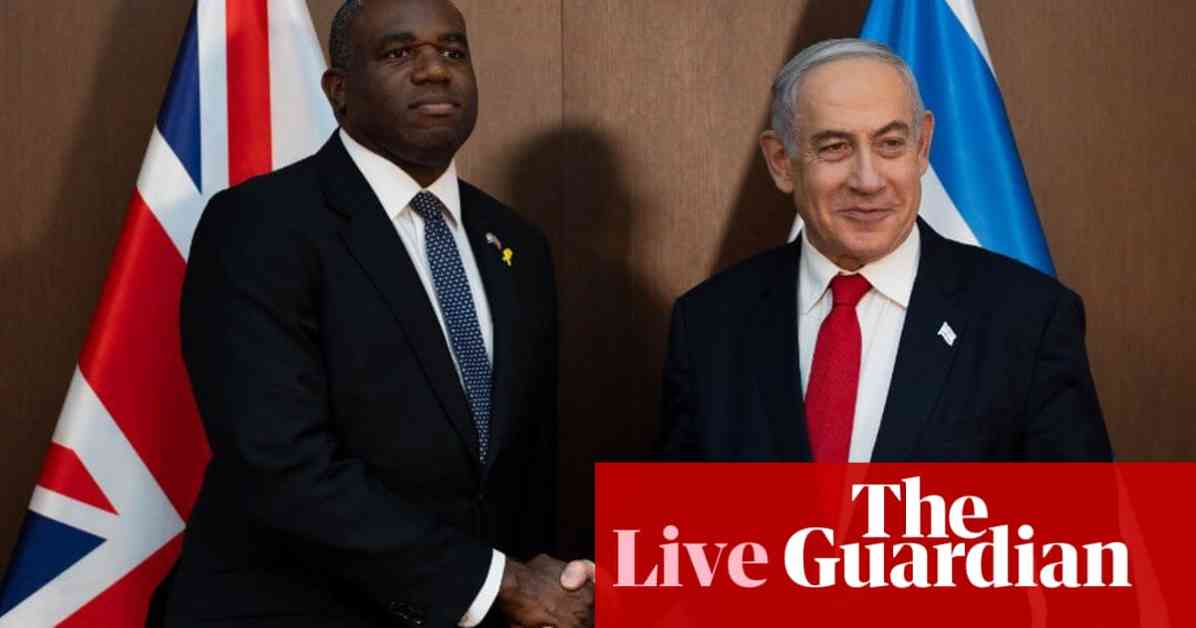Israeli Prime Minister Benjamin Netanyahu has expressed strong criticism of the UK government’s decision to suspend some arms sales to Israel, referring to it as “shameful.” This move came in the aftermath of Hamas’s execution of six Israeli hostages, leading to the suspension of thirty arms licenses to Israel by the UK.
Netanyahu took to social media to denounce the decision, emphasizing that it will not deter Israel’s resolve to defeat Hamas, a terrorist organization responsible for the deaths of 1200 individuals, including 14 British citizens. He highlighted the ongoing hostage situation, with over 100 individuals still held captive by Hamas, including 5 British citizens. The Israeli PM underscored that instead of supporting Israel in its fight against terrorism, the UK’s decision will only embolden Hamas.
Israel’s approach to the conflict with Hamas was framed as a just war, conducted with ethical means and in compliance with international law. Netanyahu drew parallels between Israel’s struggle against Hamas and the UK’s historic stand against the Nazis, emphasizing the significance of standing against terrorism.
Despite the suspension of arms sales from the UK, Netanyahu asserted that Israel remains determined to secure victory in the ongoing conflict and safeguard the future of both nations.
The decision by the UK government to suspend arms sales to Israel has sparked a wave of reactions from various quarters. Former Prime Minister Boris Johnson accused Labour of “abandoning Israel” and insinuated that the move implied support for Hamas, the terrorist organization responsible for the recent atrocities in Israel.
Chief Rabbi Sir Ephraim Mirvis expressed disappointment in the UK’s decision, criticizing the timing of the move and its potential impact on Israel’s security. He highlighted the complexities of the conflict and the need for a united front against shared enemies.
Human rights organizations, such as Oxfam GB and ActionAid UK, called for more substantial action from the UK government, denouncing the suspension of arms sales as mere tokenism that falls short of addressing the atrocities occurring in Gaza.
In response to the backlash, Defence Secretary John Healey reaffirmed the UK’s commitment to Israel’s right to self-defence, emphasizing that the suspension of arms sales would not significantly impact Israel’s security.
The decision to suspend arms sales to Israel has reignited debates surrounding the Israel-Gaza conflict and the UK’s stance on the matter. As tensions escalate and diplomatic relations are strained, the international community watches closely as the two nations navigate a complex and volatile situation.
Analysis of the UK’s Decision
The UK government’s suspension of arms sales to Israel has been met with mixed reactions, reflecting the complexities of the Israel-Gaza conflict. While some view the move as a necessary step to address human rights concerns and ensure compliance with international law, others criticize it as a misguided decision that could undermine Israel’s security and embolden terrorist groups.
Impact on Diplomatic Relations
The fallout from the UK’s decision to suspend arms sales to Israel is likely to have far-reaching implications for diplomatic relations between the two countries. As Israel grapples with ongoing security threats and the need for international support, the UK’s stance on arms sales could strain ties and alter the dynamics of their relationship.
Future Prospects for Peace
Amidst escalating tensions and conflicting narratives, the path to peace in the Israel-Gaza conflict remains uncertain. The UK’s decision to suspend arms sales to Israel raises questions about the efficacy of such measures in promoting peace and stability in the region. As both sides navigate complex geopolitical realities, the pursuit of a lasting peace agreement continues to face significant challenges.












